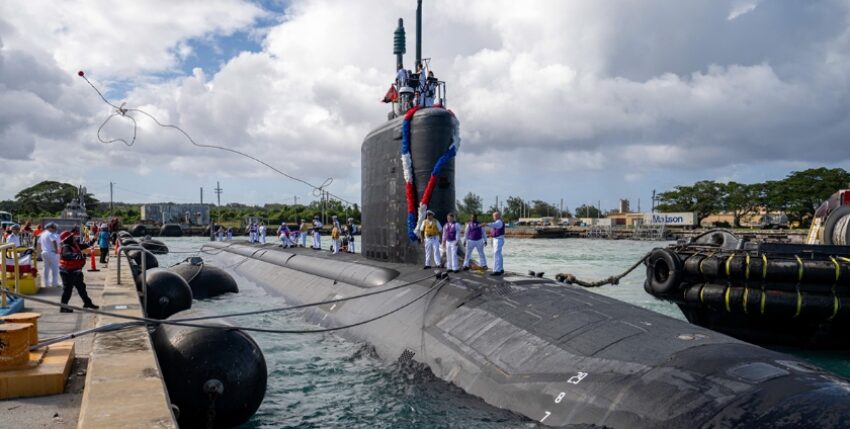The transfer of the Minnesota to the Pacific island places high demands on the logistics of the US Navy.
The US Armed Forces are describing the arrival of the USS Minnesota on Guam on 26 November 2024 as a significant milestone for their navy and strategic planning in the Indo-Pacific region. As the first Virginia-class submarine to be permanently stationed on Guam, the Minnesota symbolises the increased presence and readiness of US forces in this geopolitically tense region, the Indo-Pacific Command said in a press release. The deployment of the Minnesota to Guam is part of a broader Pentagon plan to strengthen the force structure in the Indo-Pacific and to increase deterrence and defence capabilities in the region.

It is not yet clear how many Virginia-class units will be deployed to Guam in the future. Four Los Angeles-class submarines are already stationed on the island. The addition of Virginia-class boats, which have more modern equipment, will increase the US Navy's operational flexibility and strengthen its ability to respond to a variety of threats. The island's geographic location allows for faster response time to potential threats in the Western Pacific - a growing priority for the U.S. military as China's military presence in the region increases.
Adaptation of infrastructure and logistics
The permanent stationing of Virginia-class units requires the adaptation of the existing infrastructure and logistics. First of all, the maintenance facilities on Guam must be expanded and modernised to meet the specific requirements of the Virginia class. This includes the provision of specialised dock facilities and technical equipment for the maintenance and repair of the submarines. In addition, the logistical capabilities on Guam must be improved to ensure the continuous supply and support of the newly deployed units. This includes the storage and transport of spare parts and other essential resources.
After all, the crews and their families must be provided for. The decision in favour of Guam as a home port means that the 140 crew members will be stationed on the island for an average of three years. The family members of the married personnel will also relocate to Guam from Pearl Harbour. Service housing, schools, medical care and leisure infrastructure will have to be expanded accordingly. Although this is costly, the long-term stationing of the same crew offers the opportunity to familiarise themselves with the operational environment. The operational readiness of the submarines is strengthened accordingly. Guam's orientation as a home port for at least one Virginia-class unit also strengthens the ability to provide logistical support for units of this class operating only temporarily in the Indo-Pacific region in future.
Sidney E. Dean







